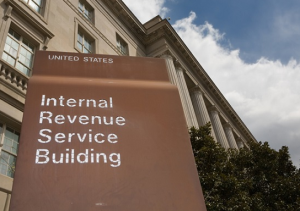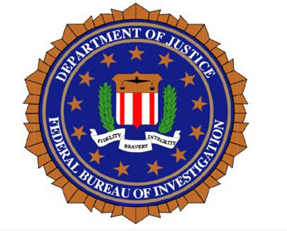Go to Page Section:
For the first time in recent history, the IRS has been knocked down a few pegs.
In a hearing, lawmakers took turns calling out IRS Commissioner Steven Miller for the scandalous practice of targeting groups that were thought to be conservative.
What Did the IRS Do?
To put it simply, in a report issued by the Treasury Department inspector general it has come to light that the IRS subjected certain conservative groups, mainly those associated with the Tea Party, to undue scrutiny when they applied for tax-exempt status.
Why Did the IRS Target These Groups?
When considering why the IRS may have targeted more conservative groups it is important to consider why these conservative groups were applying for these petitions to the IRS in the first place.
These groups were attempting to gain approval for operation under Section 501 c4 of the Internal Revenue Code.
Under this code, the groups would not be considered as political organizations, but rather as social welfare organizations.
Groups that operate under this section of the Internal Revenue Code do not have to pay taxes and they are not required to disclose who their donors are, unlike a traditional political action committee.
In return for tax exemption, the organizations must cease endorsing candidates.
 If this definition seems to be a bit unclear, that is because it is.
If this definition seems to be a bit unclear, that is because it is.
That is, what these groups are allowed to do is relatively difficult to determine.
In particular, leading up to the elections of 2012 nearly all of these groups were political in nature.
In every meaningful way, these groups were instrumental forces in political campaigns.
The real scandal that should be being discussed is that the 501 c4 groups have been a part of political activity in an open manner.
There were many groups that were improperly provided tax-exempt status as “social welfare” organizations as a way to hide donors that financed campaign activities.
When considering the above it becomes a bit clearer as to why the IRS may have targeted groups that were applying for 501 c4 status.
However, the issue is that the groups that were targeted were only those that had conservative-sounding names including Patriot or Tea Party.
Groups that had more liberal-sounding names were often approved at a much faster rate.
Did the IRS Break Any Laws?
The question is did the IRS break any laws?
According to the IRS employees, they took the names of groups as a clue that the group would not be engaging in a “social welfare” operation.
When considered, this may seem as reasonable as having “tea party” as a part of your name is a slight clue that the group may be exclusively involved in politics.
The problem is that the law was selectively enforced by employees of the IRS.
Groups with conservative-sounding names were set aside for further evaluation while groups that had names that included progressive or progress were approved in as few as nine months.
In essence, the liberal groups that were applying for the same tax status and involved in the same political activities were being approved while the conservative groups were being audited and denied.
 The FBI and the Justice Department are now examining all of the facts of the case to determine whether or not there were criminal violations.
The FBI and the Justice Department are now examining all of the facts of the case to determine whether or not there were criminal violations.
White House and IRS Response
Steven T. Miller, the outgoing commissioner for the IRS was questioned about the targeting of conservative groups.
Miller repeated that these groups were not in fact targeted because they were conservative, but simply listed as being involved in political activity.
Essentially, he stated that the department “provided horrible customer service.”
Miller has been asked to resign by President Obama.
President Obama gave a statement that said the findings in the report were “intolerable and inexcusable.”
In addition, he has told Jack Lew, Treasury Secretary, to hold all of those responsible accountable and to ensure that all of the recommendations from the Inspector General are implemented quickly.
One problem with the president’s reaction is that we are expected to believe that he had no idea what was going on the entire time.
While the employees from the IRS stated that they were not told to process these applications in this manner and that they did not inform anyone that they were conducting investigations into conservative groups, it is difficult to believe that the White House and other government officials remained unaware that this was happening.
Currently, there are no IRS employees who were involved in the decision that have been disciplined.
Even Miller, who was asked to resign, was not really punished as he was expected to leave office in June anyway.
In fact, one of the employees that were involved in the scandal was promoted.
Conclusion
When it comes to politics it is sometimes difficult to take a bipartisan approach.
However, one must see that it does not matter which party is in the White House as all bureaucracies and administrations are corrupt.
After all, they thrive on exerting power over other people.
Throughout history, we can see the corrupting influence that power can have and in this case, Washington D.C. can be seen as a magnet for those who seek money, favor, or a big title over some program that is pointless.
When visiting D.C. it is easy to see what money can buy you.
If any lesson can be taken from this current mess with the IRS it is this, the federal government is a beast that cannot be tamed.
The scandals that we actually learn about, such as this one are nothing compared to what actually goes on.
References:
http://www.reuters.com/article/2013/05/16/us-usa-obama-irs-statement-idUSBRE94E1EA20130516
http://online.wsj.com/article/SB10001424127887324767004578487332636180800.html
Videos:
https://www.youtube.com/watch?feature=player_detailpage&v=N9-LkEH9Owc
https://www.youtube.com/watch?feature=player_detailpage&v=ZIFzVtcrykk
https://www.youtube.com/watch?feature=player_detailpage&v=3NT6x85P8Vg


The scandal serves as a reminder of the delicate balance between government oversight and respecting the rights and freedoms of citizens, particularly in the realm of political activities.
It promoted changes in IRS leadership and procedures to prevent such incidents from occurring in the future, emphasizing the importance of maintaining public trust in government institutions.